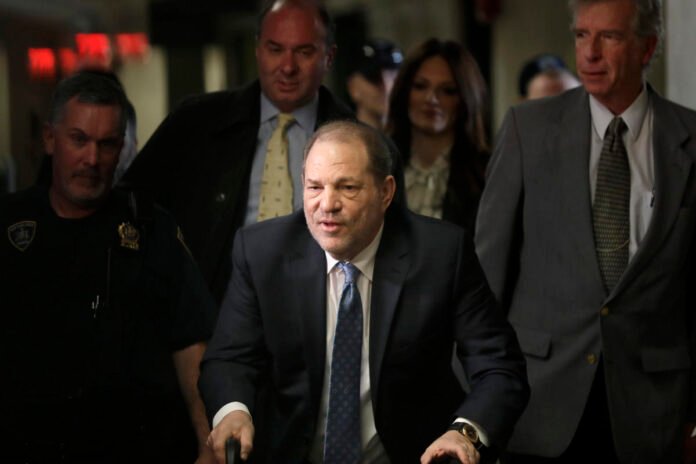Harvey Weinstein, the once-powerful Hollywood mogul, saw his 2020 rape conviction overturned by a New York court. The decision, which stunned many and ignited a flurry of reactions, epitomizes the complexities and nuances of the legal system, especially in cases that intersect with broader social movements like the #MeToo reckoning.
Weinstein’s downfall began in 2017 when numerous women came forward with allegations of sexual misconduct, ranging from harassment to assault, spanning decades. These revelations catalyzed the #MeToo movement, sparking a seismic shift in societal attitudes towards sexual harassment and abuse of power. Weinstein’s subsequent arrest and trial symbolized a watershed moment in the fight against impunity for perpetrators of sexual violence, with his conviction hailed as a victory for survivors worldwide.
However, the recent overturning of Weinstein’s conviction has cast a shadow over these triumphs, prompting soul-searching and renewed scrutiny of the legal process. The appellate court’s decision centered on technicalities related to jury instructions and prosecutorial conduct, rather than the merits of the case itself. This legal maneuvering underscores the intricacies of the justice system, where procedural matters can often overshadow substantive issues, leaving survivors feeling disillusioned and justice elusive.
The ramifications of Weinstein’s overturned conviction extend beyond the confines of the courtroom, resonating with broader societal debates on accountability, power dynamics, and the limitations of the legal system in addressing systemic issues of gender-based violence. For many, Weinstein’s case symbolized not only the failure of an individual but also the complicity of institutions and the pervasiveness of a culture that enables and perpetuates sexual misconduct.
The decision to overturn Weinstein’s conviction has reignited discussions about the challenges survivors face in seeking justice within a legal system that often fails to adequately address their experiences and trauma. The complexities of sexual violence cases, compounded by societal attitudes and institutional barriers, can create formidable obstacles for survivors, leaving many feeling marginalized and unheard.
Moreover, Weinstein’s case highlights the inherent power imbalances that permeate the criminal justice system, particularly in high-profile trials involving influential defendants. The vast resources at Weinstein’s disposal, including a formidable legal team and access to influential networks, underscored the disparities in power and privilege that often define the pursuit of justice, leaving survivors at a distinct disadvantage.
Amidst the legal maneuvering and public scrutiny, it is crucial to center the experiences and voices of survivors, whose courage in coming forward paved the way for a reckoning with entrenched patterns of abuse and exploitation. While Weinstein’s overturned conviction may represent a setback in the quest for accountability, it also serves as a sobering reminder of the work that remains to be done in dismantling systems of oppression and ensuring justice for all survivors.
In the wake of Weinstein’s overturned conviction, there is an urgent need to redouble efforts to support survivors, amplify their voices, and advocate for systemic reforms that address the root causes of sexual violence. This includes bolstering legal protections, improving access to support services, and fostering a culture of accountability that holds perpetrators accountable for their actions.
Ultimately, the Weinstein case serves as a cautionary tale about the limitations of the legal system in addressing the complex dynamics of sexual violence and abuse of power. While legal victories are significant, they are not the sole measure of justice, nor do they erase the trauma experienced by survivors. As we navigate the aftermath of Weinstein’s overturned conviction, let us recommit ourselves to the pursuit of justice, solidarity with survivors, and the relentless pursuit of a world free from sexual violence and exploitation.

